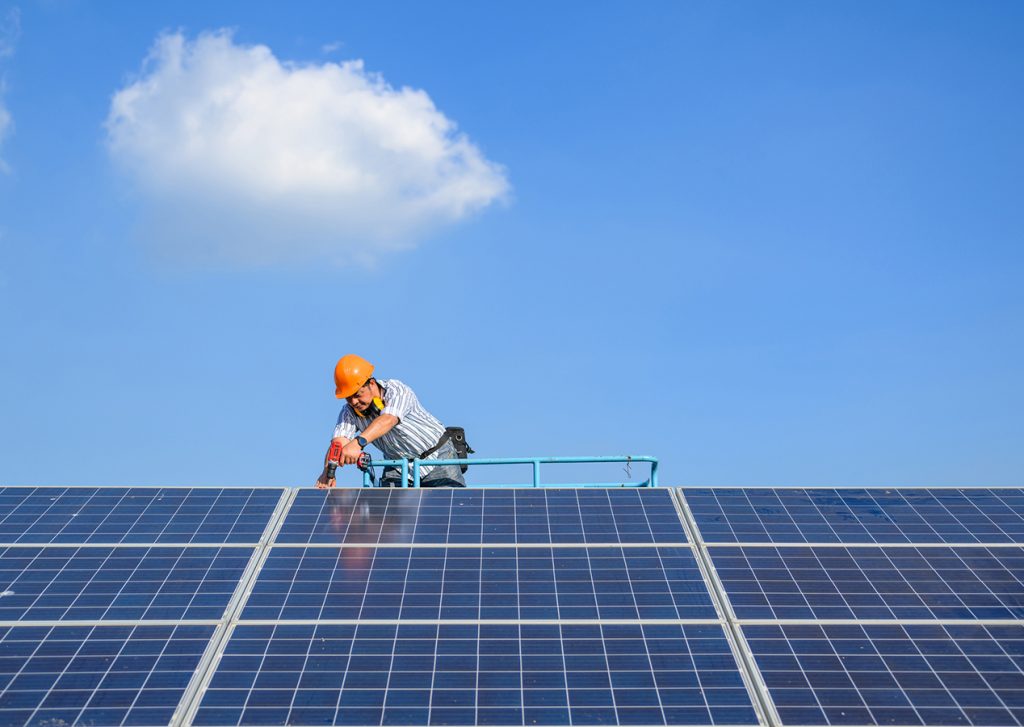Exactly How Solar Power Can Help You Conserve Cash and Reduce Your Carbon Impact
The combination of solar power into your energy portfolio offers an engaging possibility for both financial cost savings and environmental stewardship. As various federal government rewards come to be available, the inquiry occurs: just how can one properly browse the preliminary investments and ongoing benefits of solar innovation to take full advantage of both financial and environmental gains?
Comprehending Solar Energy Savings
While the change to solar energy commonly involves an initial financial investment, understanding solar power savings is critical for house owners and organizations alike. Solar energy systems can considerably reduce power bills by taking advantage of the sunlight's energy, converting right into considerable long-lasting financial benefits. By creating their very own electrical energy, individuals decrease dependence on grid power, which is subject to changing prices. These cost savings can accumulate with time, often bring about a fast roi.
Furthermore, solar power systems might get various financial rewards, consisting of tax credit reports and discounts, additionally boosting their cost-effectiveness. The availability of web metering permits individuals to sell excess energy back to the grid, creating an extra income stream. These aspects add to the total cost savings connected with solar power.

In enhancement to guide financial cost savings, solar power supplies the added benefit of raising building worth. Homes furnished with solar panels are often a lot more attractive to purchasers, as they assure lower energy expenses - Simply Solar Illinois. Recognizing these components is important for any person thinking about solar energy, as it highlights not just the prospective economic gains, however additionally the wider ecological and financial advantages of taking on renewable resource solutions
Initial Expenses vs. Long-Term Benefits
When examining solar power, it is necessary to weigh the preliminary expenses against the long-term advantages. The in advance financial investment for solar panels, installation, and associated devices can be significant, usually ranging from $15,000 to $30,000, depending on the system dimension and home power demands. This preliminary expense may deter some property owners; nevertheless, it is crucial to consider the possible savings gradually.
As soon as installed, solar energy systems can considerably lower or also eliminate regular monthly power bills, leading to considerable lasting financial benefits. Researches suggest that house owners can conserve anywhere from $10,000 to $30,000 over the life-span of their solar system, normally 25 years. Furthermore, lots of states provide incentives, tax obligation credit reports, and rebates that can balance out first prices, making solar a lot more accessible.

Minimizing Your Carbon Footprint
Lowering your carbon impact is an important consideration in today's eco conscious culture, and taking on solar power is one of one of the most efficient approaches to achieve this objective. Solar energy is a tidy, renewable source that considerably lessens reliance on fossil gas, which are major contributors to greenhouse gas emissions.

Moreover, the prevalent fostering of solar technology urges the development of environment-friendly tasks and supports technologies in energy storage space and effectiveness. The more individuals and organizations purchase solar power, the higher the cumulative reduction in carbon exhausts, promoting a cleaner ambience for future generations.
Government Motivations and Refunds
Taking on solar power not just profits the environment but can likewise cause considerable economic savings, particularly with the schedule of government rewards and discounts. Various government, state, and neighborhood programs are created to encourage home owners and companies to buy solar energy systems, making the transition a lot more economical.
Among the most popular motivations is the Federal Investment Tax Credit Report (ITC), which allows solar system proprietors to deduct a considerable percent of the installment costs from their government tax obligations. This incentive has actually been essential in reducing the ahead of time costs related to solar power systems. In addition, numerous states provide their own tax credit histories, gives, and refunds that can further improve financial savings.
Additionally, some city governments supply real estate tax exemptions for solar installments, ensuring that property owners do not deal with enhanced residential property tax obligations as a result helpful site of their renewable resource financial investments. Energy business may also offer incentives, consisting of net metering and feed-in tariffs, which permit solar power individuals to offer excess power back to the grid.
Choosing the Right Solar System
Selecting the proper planetary system is vital for making best use of power effectiveness and financial advantages. The choice rests on a number of elements, including energy demands, spending plan, and offered space. Property owners should start by examining their electrical energy intake to determine the system dimension required for ideal performance.
Next, think about the different kinds of solar technologies readily available. Simply Solar Illinois. Photovoltaic (PV) panels are one of the most common, transforming sunlight straight into power, while solar thermal systems focus on home heating water. Each type has distinctive benefits depending on private needs
Budget plan factors to consider are also extremely important. Preliminary installation expenses can differ substantially, so it is necessary to contrast quotes from multiple carriers and explore funding alternatives. Government motivations and rebates can better minimize the economic burden, making solar systems extra available.
Final Thought
The ecological benefits of solar energy contribute to sustainable practices crucial for combating environment adjustment. Federal government rewards enhance the usefulness of solar modern technology fostering, motivating a transition in the direction of a cleaner, more financially reliable energy source.